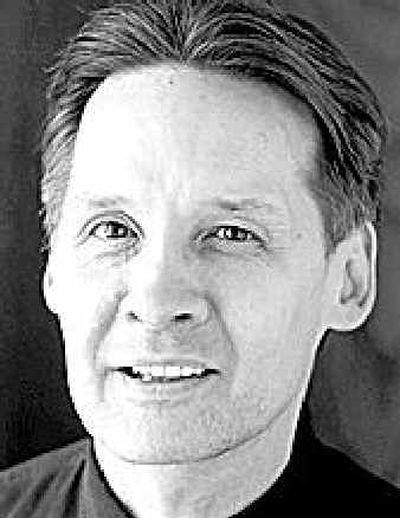Nethercutt’s Pledge makes point

Rep. George Nethercutt got a chance to lead the House in the Pledge of Allegiance this week, and made a point of saying the two most controversial words – “under God” – in the daily recitation.
He also made a point of noting that Rep. Jim McDermott did not utter those words when the Seattle Democrat stood hand on heart April 28 as designated House pledger.
“Washington may be in the Ninth Circuit, but we all live under God,” Nethercutt said in a post-Pledge press release. “I’m proud to lead the Pledge of Allegiance. I’m proud to live in ‘one nation, under God.’ ”
For those not up on the controversy, the Ninth U.S. Circuit Court of Appeals, which covers Washington and other Western states, is the one that ruled requiring schoolchildren to recite the pledge with the phrase “under God” is an unconstitutional endorsement of religion. The U.S. Supreme Court is reviewing the case.
Nethercutt’s campaign further made a point of questioning where his potential general election opponent Patty Murray stood on this most vital of American issues.
Murray, it seems, didn’t denounce McDermott for his omission.
“Senator Murray was silent after McDermott skipped ‘under God’; George Nethercutt is literally speaking up,” spokesman Alex Conant said.
But the Murray forces weren’t willing to surrender the high ground without a fight. Campaign spokeswoman Alex Glass (yes, both sides have an Alex as a spokesperson. What are the odds?) said Murray doesn’t usually comment on what McDermott does or doesn’t do over in the other chamber.
But last year she voted yes on a Senate resolution critical of the Ninth’s ruling. Unlike the House, only members of the majority party in the Senate lead the pledge in the morning, so Murray hasn’t had that job since Nov. 13, 2001. And when she did, she used “under God,” Glass added.
“She sees the Pledge of Allegiance as a nonpartisan issue. She does not play politics with it,” Glass said.
So does that mean Nethercutt does? Glass was asked. “He put out a political press release about it,” she replied.
Reminder to Spokane voters
Tuesday is Election Day for the proposed Spokane Transit Authority tax. Polls are open from 7 a.m. to 8 p.m.
Figures don’t lie
Speaking of the Murray-Nethercutt race (or the Nethercutt-Murray race, for those who prefer reverse alphabetical order) the two campaigns released dueling poll results last week, which isn’t unusual.
Each side also released only the numbers they wanted, so it’s possible each had some less positive news they weren’t sharing. Also, not unusual.
But the Nethercutt campaign did an unusual thing when announcing its results from the head-to-head matchup. “The new poll shows Murray gathering just over 50 percent, while Nethercutt now stands at 41.1 percent,” the campaign press release said in its first paragraph.
Those familiar with polls know that results are seldom whole numbers, but it seemed strange the campaign would round off one number and toss a digit after a decimal point for the other. A memo from the pollster was attached for those who wanted further information, so we checked. It said the actual numbers were, Murray 50.6 percent, Nethercutt 41.1 percent.
We’re not familiar with the latest math theories in grade school, but it used to be that the proper way to round off numbers was to round up at .5 and above, and round down below that. But then, that would have meant the spread was 51 percent to 41 percent. And the press release’s headline “Senate Race in Single Digits” wouldn’t work.
Suggestion for Tuesday
Those undecided on how to vote on the STA tax proposal might consider riding a bus to the polls. Just a thought.
The Buzz: Latest rumor on the campaign trail
Spokane County Republicans are trying to arrange a debate for the Fifth Congressional District race on June 22, somewhere in downtown Spokane. It would be an evening gig. One possible venue: The Big Easy. Which might make this the easiest congressional debate to sit through in years.
There’s also a possibility that the debate would be bipartisan, with an invitation extended to Democrat Don Barbieri. More on this as it develops.
Courting a challenge of the court
Former City Councilman turned Superior Court hopeful Steve Eugster thinks Washington’s rules for judicial candidates are unconstitutional. So he’s filed a federal lawsuit against the state’s Rule of Professional Conduct and the Canon of Judicial Conduct.
Yeah, our reaction was the same: another Eugster lawsuit.
But consider his underlying argument: The rules and canons restrict judicial candidates from personally asking supporters for money or accepting it. They have to set up committees of other people to do that. Eugster, as an established candidate, has a network of past supporters who might be willing to back him this time. But he can’t go to them, talk about his views on the sad state of the judiciary, and ask for contributions.
It’s a violation of his state and federal rights of free speech and free association, without due process, Eugster argues in his lawsuit.
The legal merits of this claim are for the judges to decide. But remember, the U.S. Supreme Court has ruled that political speech is to be among the freest speech in the land.
Besides, don’t voters deserve more than judicial races that rely on nothing more than a comparison of resumes and dueling lists of endorsements?